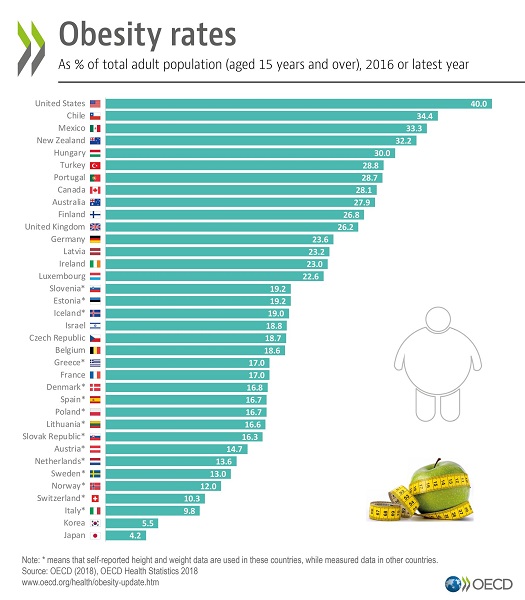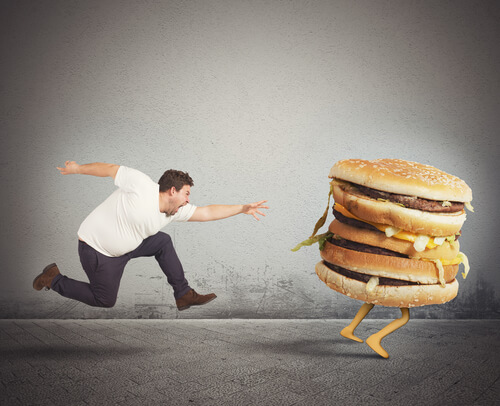Weight Management Coaching – The Birth of a New Profession

Weight Management Coaching is a profession regulated by the New Zealand Register of Weight Management Coaches.
To become registered, coaches complete New Zealand’s one and only Diploma in Weight Management Coaching. Coaches maintain their registration via a bi-annual mix of professional development and client case reviews.
In practice, coaches adhere to a professional code of ethics and use a number of approved client intervention tools and techniques.
Registered coaches provide their services online and/or face-to-face, and can be found by the public via the NZ Register of Weight Management Coaches. Most coaches provide an initial free consultation to explore each client’s needs, objectives, and background.
Coaches work from a unique framework that addresses the core drivers of weight gain which are multi-factorial and personally complex. Through the process of coaching, clients enjoy sustained, progressive, and customised weight loss and ongoing support tailored to their personal situation.
Why did Weight Management Coaching develop?
In response to decades of unsuccessful interventions, the challenge of weight loss was reviewed against the latest science. We determined that the problem isn’t a lack of knowledge about what foods are healthy or unhealthy. The problem is that our current interventions are based on an overly simplistic model (energy in versus energy out) that ignores the key drivers of obesity (biology, environment, and behaviour).
Too many weight-loss interventions produce no weight loss, or only temporary weight loss at best. Many of the interventions are stressful for clients, poorly thought through, mis-matched to client needs, and unsustainable.
To tackle our nations weight problem effectively, we needed to start practicing from a personalised behavioural model – a coaching model.
New Zealand has a major health problem
In 1977, when public health officials first started measuring our rates of overweight and obesity; 10% of the adult population classified as obese. By the turn of the century this had increased to over 20%. In the early 2010s, we joined the United States, Chile, Mexico, and Hungary as OECD countries where more than 30% of the adult population classifies as obese.
Unless we significantly change the way we approach weight loss, the average kiwi adult is projected to be obese by the mid-2030s. [ref 1]
In addition, childhood obesity has also become a major concern. One in eight kiwi kids (12.7%) now classifies as obese with a further 18% classifying as overweight.
Obesity negatively impacts health, longevity, and quality of life
There is a grim reality associated with obesity; it is a major risk factor for cardiovascular diseases, type 2 diabetes, many cancers, and musculoskeletal disorders such as osteoarthritis. People with obesity also have an increased risk for depression, anxiety, low self-esteem, and suicide. And in terms of longevity, it’s estimated that up to 13 years of life can be lost in males with obesity, with up to eight years being lost for females. [ref 2]
A great deal of time, money, and energy is invested by people in their attempts to lose weight. Tragically, success is limited to the short-term at best. Weight is almost always regained shortly after the latest weight-loss fad finishes. Rather than trying to understand why this pattern repeats, people are accused of being lazy, and lacking the willpower required to keep the weight off. Recently, a celebrity even went as far as recommending peoples mouths be taped over with gaffer tape! [ref 3]
The blame game has achieved nothing other than exacerbating the problem. It’s hindered our understanding of obesity and interfered with the development of sustainable weight-loss interventions.
Current weight loss approaches have fundamental flaws
As obesity rates have soared across the Western world, so too has the market for weight loss products and services. Worth $255 billion (US) in 2021, the global market for these products and services is forecast to be worth $377 billion (US) by 2026. [ref 4]
Consider the irony for a moment. We have a booming market of weight loss products and services, yet the prevalence of obesity continues to rise. Somethings not working as it should!
There’s more to weight loss than calories in versus calories out
To date, virtually all approaches to weight loss are based on the simplistic energy balance equation.
Obesity is believed to be little more than the product of consuming more calories than are expended. As such, the available solutions involve little more than tipping the energy balance into the negative. Diets, supplements, and diet-pills focus on reducing energy intake. Bariatric surgery reduces the size of the stomach so fewer calories can be consumed. Exercise programmes focus on increasing energy expenditure.
While technically correct (weight loss does require a negative energy balance), such approaches fail to address the primary drivers of obesity, namely:
- Human biology; shaped by food scarcity, our biology has evolved to resist weight loss and encourage weight gain
- Psychology; we engage in activities that are pleasurable and eating provides a guaranteed source of pleasure and comfort
- The modern ‘obesogenic’ food environment; this bears no resemblance to the food environment that has dominated human history, to which we are biologically suited.
Weight regain is an inevitable consequence of current weight loss approaches
According to anthropologists, humans have been dependent on the scarce food resources provided by the natural world for 99.5% of our evolutionary past. [ref 5]
The earliest member of the human genus, (homo habilis) emerged approximately 2.4 million years ago. It was only 10,000 years ago that the first evidence of farming emerged, via the agricultural revolution. Rapid increases in food production didn’t occur until the industrial revolution of the late 18th-early 19th centuries. Despite these increases, famine remained a feature of human life due to crop failures and the need to feed a rapidly expanding human population.
Food has only become abundant (in the Western world) during the last 40-50 years as technological advances have enabled it to be produced in massive quantities. Prior to the last 40-50 years, a significant investment in labour was required to hunt, gather, scavenge, and eventually, farm food. Such investments wouldn’t have been made unless there were significant payoff’s or rewards associated with eating.
We eat because it’s pleasurable
Our understanding of why we eat is finally starting to evolve. When consumed, sweet foods which signal the presence of carbohydrate, and fat foods which signal abundant energy, light up the reward and pleasure centres in the brain, in much the same way that addictive drugs do. [ref 6]
It turns out that one of the keys to human survival has been the development of a craving for food. This craving motivated us to invest our time and energy into searching for scarce food resources.
When we crave the pleasure and reward associated with an activity, then we’re more likely to engage in it. Quite simply, food provides much more than just calories and nutrients. Food provides us with a key source of pleasure, and pleasure makes every investment of time and energy worthwhile.
Additionally, via a digestive system made of elastic, smooth muscle, we developed the capacity to overeat. This enabled us to take full advantage of limited food sources when they were available. We developed hormones that make us feel hungry whenever our digestive system isn’t full. These hormones encourage us to search for food almost constantly.
Additionally, we developed the ability to slow our metabolism to conserve energy between the sporadic meals that nature provided.
We’re not physiologically adapted to the modern food environment
The ‘developments’ which have been key to our survival as a species are simply not suited to an environment where food is abundant, easy to access, and loaded with extra sugar and fat. Our semi-permanent feelings of hunger are easily satisfied by a proliferation of ultra-processed food that is relentlessly marketed to us via:
- Mainstream media (TV, radio)
- Social media (Facebook, You-Tube, Instagram, TikTok, Snap-chat)
- Billboards
- Special offers in dairies and supermarkets
- Street signage
- Various forms of sponsorship including school sports equipment and competitions.
The development of the modern food environment has coincided perfectly with the obesity epidemic. It is this environment that lies in wait as people finish their latest diet, weight-loss pills, or recover from their latest exercise-induced weight loss attempt.
Weight regain is an inevitable consequence of weight loss approaches which fail to recognise the impact of this environment, and help people to navigate the obstacles it presents. Any weight loss solution that isn’t sustainable, dooms its participants to the frustration and despair of weight regain.
We don’t need different versions of the same old diet-oriented weight loss formula. We need to start practicing from a completely different model that isn’t preoccupied with ‘calories in versus calories out’.
How do Weight Management Coaches help clients?
Weight Management Coaches operate from a behavioural framework where the focus is on helping people to build healthier, sustainable behaviours. Coaches understand that behaviours are built into the neural structure of our brains. They don’t just disappear when we want them to, they need to be re-programmed.
Weight Management Coaches help clients to re-programme their behaviours
To re-programme behaviours, coaches help their clients to identify and understand the constituent parts of the behaviour.
The constituent parts refer to the triggers (antecedents) that prompt or cue the behaviour, the behaviour itself, and the consequences that reinforce the behaviour, making it more likely to be repeated. In short, coaches help clients to understand their ABCs (Antecedents-Behaviour-Consequences).
Sometimes the ABCs are simple. For example, a clients feelings of hunger and thirst might prompt the consumption of an afternoon Coke and pastry. If the clients hunger and thirst are satisfied, the behaviour will be reinforced, and likely to be repeated. Sometimes the ABCs are harder to identify and understand. Feeling bored, stressed, frustrated, or in need of human contact could prompt the afternoon Coke and pastry. Interacting with a colleague at a local cafe could alleviate these unpleasant emotions, and reinforce the Coke and pastry consumption.
Quite often our eating behaviours have very little to do with hunger and thirst.
Identifying and understanding the ABCs is essential because only then can they be altered successfully.
Weight Management Coaches help clients to identify healthier behaviours that can replace the existing behaviour whilst providing the same, or similar reinforcement. In this regard, the process of change is more appropriately described as the process of modification.
Once modifications are made, coaches help clients to remove the barriers that might interfere with repetition of the modified behaviour. In doing so, they enable the modified behaviour to overwrite the existing neural programming, and allow a healthier, sustainable habit to emerge.
Weight Management Coaches help clients navigate the modern food environment
Coaches help clients to negate the influence of cues that prompt unhealthy behaviours in the first place. This could be as simple as encouraging clients to remove all fast-food apps from their smartphone; so they don’t receive the daily specials from KFC or the like.
Additionally, coaches also help clients to build support networks and engage in activities that provide sources of non-food-related pleasure. The key here is that the activity (ideally physical) provides the client with enjoyment or satisfaction that is specific to them. This increases the likelihood of the activity being repeated and a healthy new habit being created.
In weight loss we’ve tended to ignore or overlook the importance of pleasure and satisfaction for our clients. We’ve based interventions on a mantra of personal sacrifice, mental discipline and sustained effort. We’ve assumed that ‘willpower’ will be able to overcome our biology and a pathological food environment. Such ill-conceived interventions have created very little pleasure and satisfaction for clients.
In too many cases, they’ve proven to be more harmful than helpful.
Become a Weight Management Coach and improve the lives of your fellow kiwis
Weight Management Coaching is the panacea to our obesity epidemic, it:
- Addresses the actual drivers of obesity (the food environment, human biology and psychology)
- Helps people thrive in the real world, not the fantasy world of fad diets
- Focuses on helping each and every individual to navigate the obstacles the obesogenic food environment throws at them.
Reversing the tide of obesity is a massive job. Fortunately, the fresh start needed is here with the development of the Weight Management Coaching profession. To fulfill this critical mission New Zealand literally needs hundreds of Weight Management Coaches.
If you’re interested in finding out about how to become a coach, you’ll find more information here.
Or, if you’d like to read more about Weight Management Coaching and why New Zealand has a major problem with overweight and obesity, check out these articles.
References:
1. Wilson & Abbott. (2018). Age, period and cohort effects on body mass index in New Zealand, 1997-2038. Australian and New Zealand Journal of Public Health, 42(4).
2. Government Office for Science. (UK). (2007). Foresight, Tackling obesities: Future choices – project report (2nd Ed).
3. Newshub. (2022, June 8). Obesity: Louise Wallace hits out at ‘fat women’ in fashion advertising during AM panel.
4. GlobeNewswire. (2021, August 3). Key Trends and opportunities in the global weight loss products and services market to 2026.
5. Jurmain et al. (1987). Understanding physical anthropology and archaeology (3rd. Ed).
6. Kenny, P.J. (2013). The food addiction. Scientific American.
Use Your Passion for Fitness to Change Lives
Improve your own training, become a Qualified Personal Trainer and make a real difference in people's lives. Enquire now to find out more.










